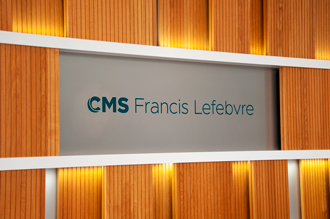
Due to the crisis linked to the Covid-19 pandemic, companies’ cash-flow requirements may become increasingly acute. Cash advances between related entities may therefore sometimes offer a flexible and effective means of addressing them, since not all companies will necessarily be in the same situation, as some may very well have surplus cash while others have a shortage. However, care should be taken to ensure that these transactions fall within the framework of normal management.
General situation
In its most recent case law, the French tax supreme court (Conseil d’Etat) describes as abnormal “the act by which an enterprise decides to impoverish itself for purposes unrelated to its own interests”. And since the group’s interest is not generally accepted from a tax perspective, each of the two companies must act in its individual interests. In principle, therefore, the advance granted must be accompanied by a “normal” interest rate, even if that causes significant cash-flow difficulties for the borrowing company.
As a reminder, the Conseil d’Etat has also ruled that the normal rate of remuneration for cash advances granted by one company to another must be assessed in respect of the remuneration that the lender could obtain from a financial institution or a similar organisation with which it could invest equivalent sums under similar conditions.
If it fails to comply with this rule, the creditor company would therefore be deemed to be subsidising the debtor company, pursuant to the provisions of Article 39, 13 of the French General Tax Code. In that case, the creditor company would be taxable on the interest not collected, unless it is able to claim a significant commercial interest – preservation of a market outlet or consistency of supply – or that the debtor company is the subject of collective proceedings and has a negative net position. Concerning the crucial question of classification of the aid granted (i.e. whether or not it is commercial), we should emphasise in passing that, according to the tax authorities, the fact that a company in a group provides internal services to other companies in the group for the common interest is not, in principle, likely to be construed as a significant commercial relationship. And although a recent decision by the Conseil d’Etat took a manifestly different approach (decision no. 398676 of 7 February 2018), it should not be viewed as a blanket solution for opposing that position by the authorities.
Tax consolidation groups
Article 223 B, subparagraph 5, of the French Tax Code authorises delivery of goods comprising the current assets and provision of services at cost, when they occur between companies members of the same tax consolidation group. These provisions therefore allow such companies to lower the interest rate applicable to mutually agreed loans and advances to what is strictly necessary for the creditor company to cover its own costs in relation to the financing in question. But if the creditor company did not itself incur debt to finance the transaction, it will be difficult to identify the cost price it incurs for the intragroup advance, while it would also appear doubtful that this could legitimately be considered to have zero cost price.
Partnerships
Taking note of the case law, the tax authorities have formally accepted that advances granted to such a company may not give rise to remuneration. Indeed, the benefit resulting from the waiver of interest is already taken into account, to some extent, in the parent company’s tax result. For reasons of “tax translucidity”, a parent company claiming interest from its 100% subsidiary – interest deducted from the subsidiary's earnings which are taxable for the parent company – would amount to the same as waiving that interest and being taxed on the subsidiary’s taxable earnings without deduction of the interest amount.
Potential for adoption on economic grounds of tax measures favourable to financial aid between companies
Finally, we should emphasise that it would advisable, in the current context and taking into account the foregoing comments, to suspend application of Article 39.13 of the French General Tax Code under which aid of any kind granted to another company is excluded from deductible tax expenses, with the exception of commercial aid and aid associated with legal mechanisms for the judicial treatment of insolvent companies. Companies with excess cash-flow could therefore validly transfer some of it, free of charge, to companies with a shortage (provided that the actual net position of the company with insufficient cash-flow is negative).
Furthermore, the provisions of Article 209, I, last subparagraph, which relax the conditions for allocation of deferred deficits for companies benefiting from a debt waiver granted in collective proceedings, could be temporarily extended to all companies. A finance law (either for 2021 or via an amended finance law) could provide a legislative framework for retroactive implementation from the start date of the health emergency.
With the economic crisis only just beginning and looking to be particularly severe, why wait until companies’ difficulties threaten to compromise their business continuity and require the intervention of the commercial court to offer the benefit of these provisions?
Insight: impacts of the Covid-19 outbreak
Our law firm provides you with legal assistance to understand all Covid-19 (Coronavirus) impacts on your business. Discover our special Insight below.
Find more about our law firm:
Our law firm is a leading international business law firm. Its deep roots, unique positioning and highly recognised expertise enables it to deliver innovative, high value-added solutions in tax, business, corporate and labour law.










